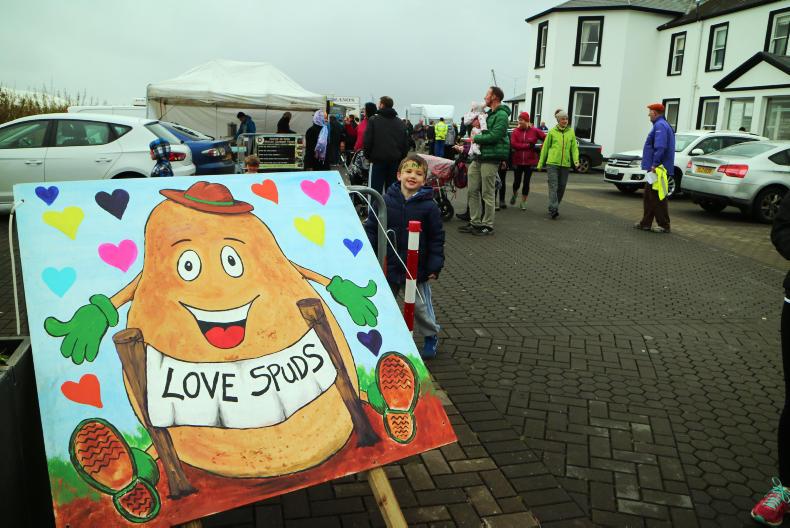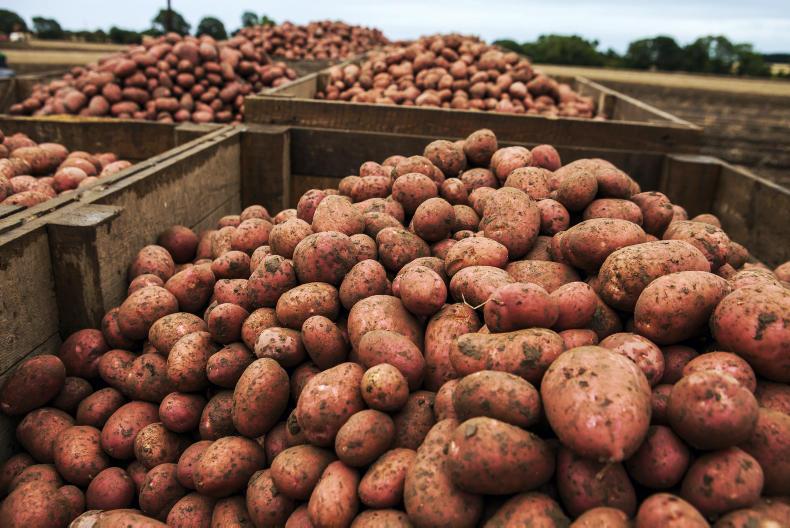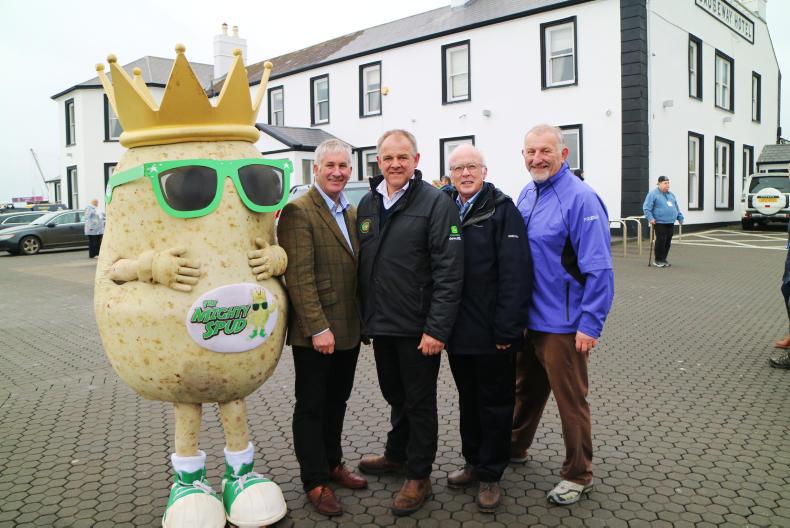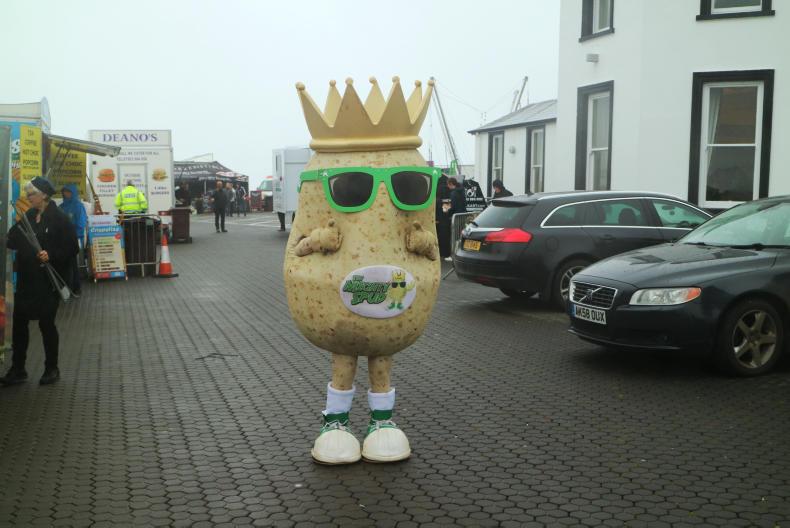While the Northern Ireland Potato Festival kicked off under a dark sky last Saturday, no shower could dampen the spirits of those who flanked the Giant’s Causeway in support of the beloved spud.
“The potato is part of our Irish heritage, part of our Irish tourism. People don’t come from all over the world to eat pasta, they come to get potato dishes. Potatoes are part of us,” explains Maurice McHenry, author of John Clarke: A Potato Wizard, which tells the story of the Antrim man who inspired the festival.
“John Clarke was a potato breeder. My father had said he was a genius,” says Maurice of Clarke, who left school at the age of 12.
“He got an honorary degree from Queen’s University, an OBE and is recognised as a genius, but he started with no formal education and he educated himself throughout his life. I did the research and discovered that he was very influential in potato breeding. Ulster Knight, one of his varieties, was the grandfather of Maris Piper, which is the biggest-selling potato in England.
“I made the point that the book would soon be forgotten, so we should have a potato festival to celebrate Clarke. The potato festival has two or three aims; to make people more aware of the quality of potatoes that we have, how nutritious they are, and to promote the potatoes for the breeders as well as to remember Clarke.”
Younger Generations
Of course, the history of the potato in Ireland is fantastically rich. The crop stormed into Ireland following its introduction into Europe. When people realised how easy the potato was to grow and maintain, alongside the nutritional benefits, it took seed among the Irish people. This dependency on the potato, however, promised a fatal outcome when the blight hit the country in the 1840s.
“You can live on the potato virtually without anything else. Big families, small areas, big cropper – the potato will give more back for the ground space than any other crop. That’s why people took to it in a big way,” explains potato heritage collector, David Langford.
Yet, while potato consumption has experienced a decline in recent years, figures released in August 2016 from the UK Agriculture and Horticulture Board (AHDB), show that for the first time in a decade, consumption has increased by 1.4% year-on-year.
Pádraic Óg Gallagher, chef and owner of Gallagher’s Boxty House Restaurant in Dublin’s Temple Bar, believes that the younger generation’s attitude towards potatoes needs to be addressed.
“The younger generation needs to be tackled. We have to steal from other cultures what they’re doing with their products. Why are people buying pasta? Why are people buying rice? Is it for convenience? We have to try and get into the psyche of what it is and educate people as to how good potatoes are for them and the fact they are actually grown here in Ireland,” says Pádraic.
“The potato is lumped in with your other carbohydrates, competing against your pastas and your rice. Pasta is really just a sugar whereas the potato is a complex carbohydrate, it is much more healthy for you. It’s fat free, full of nutrition, more potassium than a banana and there are so many different varieties of a potato.”
Brighter Future
Adrian Jamison is one of the men behind the family business, Jamison Potatoes, which has been going for 50 years – though has been challenged recently by the weather.
“The main harvest season is occurring but the weather is not allowing it – we are at a standstill,” explains Adrian. “Potatoes need a fair bit of rain to make them grow in June, July and August. The last two seasons, August and September, have been terrible wet and it is leading to big difficulties harvesting.”
With the help of The Mighty Spud campaign, which reminds people just how versatile, economic and tasty the potato is, the crop is slowly making a comeback. Adrian considers that part of the blame in relation to the decline of potato consumption is upon the supermarkets, but he is confident that the future remains bright for the potato.
“I think it is due to some of the varieties the supermarket have been pushing out. The customer now is going back to the floury potatoes, some of the local varieties, especially in Northern Ireland,” says Adrian.
“The future is bright for the potatoes and a wee bit of sunshine for the harvest would help the potato industry.” CL






 This is a subscriber-only article
This is a subscriber-only article









SHARING OPTIONS: